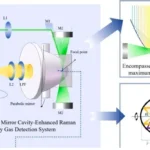Key Points
- Google’s Sycamore quantum processor outperforms classical computers in random circuit sampling (RCS).
- Reducing qubit noise to a 99.7% error-free rate enabled Sycamore to achieve this advantage.
- Quantum computers specialize in tasks like simulating chemical reactions, not everyday computing tasks.
- This achievement brings researchers one step closer to realizing their full potential.
Researchers at Google have made a significant breakthrough in the race for “quantum advantage”—where quantum computers outperform classical computers. In a study published in Nature, Google’s Sycamore quantum processor has demonstrated the ability to solve certain problems faster than the world’s most powerful classical computers.
The Sycamore processor was used to run random circuit sampling (RCS), a quantum algorithm that generates random sequences of values. This algorithm tests the ability of quantum computers to perform complex computations. When the system experienced noise interference, classical computers could still mimic or “spoof” its performance. However, when Google reduced the noise levels in the system, Sycamore’s computations became too complex for classical supercomputers to replicate—potentially taking them ten trillion years to catch up.
This breakthrough comes after Google’s initial claim of quantum supremacy in 2019 faced criticism. Google then announced that its 53-qubit Sycamore processor completed an RCS task in 200 seconds, taking classical supercomputers 10,000 years. However, competitors like IBM countered the claim, showing that classical computers could finish tasks in days or even minutes. This time, Google’s improvements in reducing qubit noise—achieving a 99.7% error-free rate—pushed Sycamore into a new realm of computational capability.
Despite the success, experts caution that quantum computers, including Sycamore, are not yet ready to replace classical computers for everyday tasks like storing data or sending emails. As Sergio Boixo, head of Google’s quantum computing effort, noted, “Quantum computers are not faster—they’re different.” They are designed for tasks that are impossible for classical systems, such as simulating complex chemical reactions.
Quantum computers rely on qubits, which can exist in multiple states simultaneously, allowing them to perform tasks with exponentially fewer resources than classical computers. As quantum computers improve, reducing noise and increasing qubit fidelity, their advantage over classical systems will become more pronounced.
Though quantum computers won’t replace classical ones anytime soon, this achievement brings researchers one step closer to realizing their full potential. The next challenge will be developing quantum systems free from noise interference and capable of consistently outperforming classical computers.





